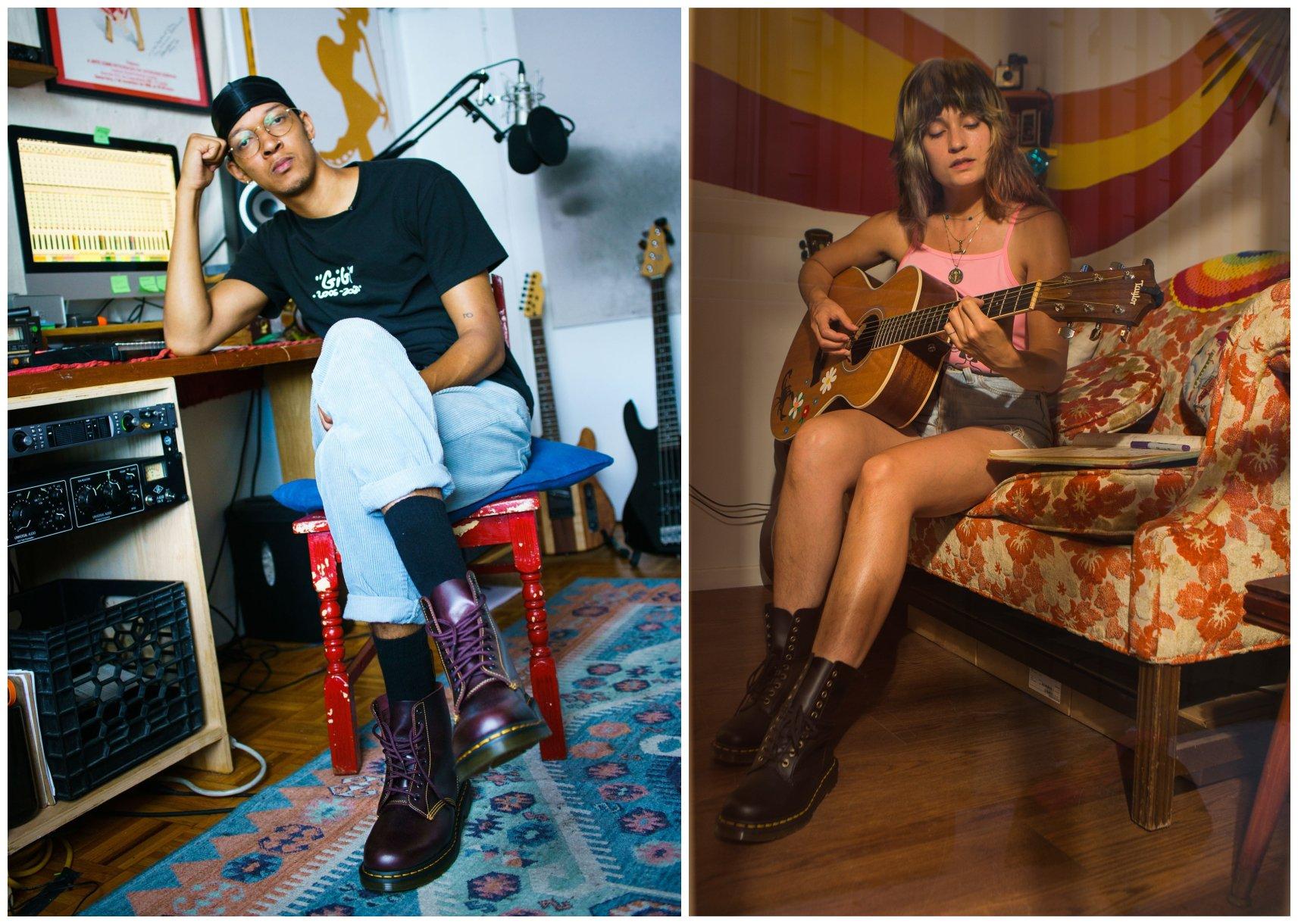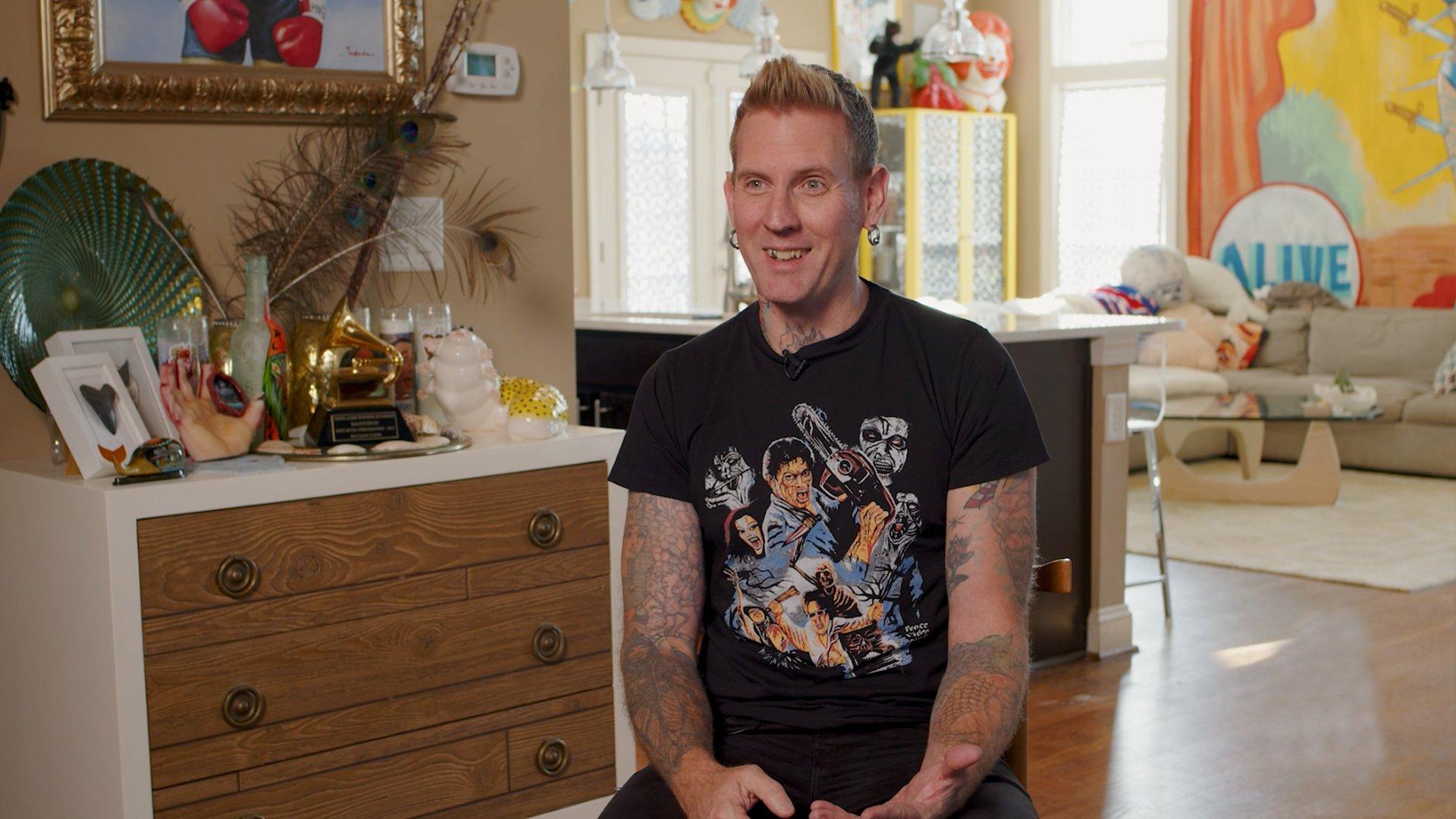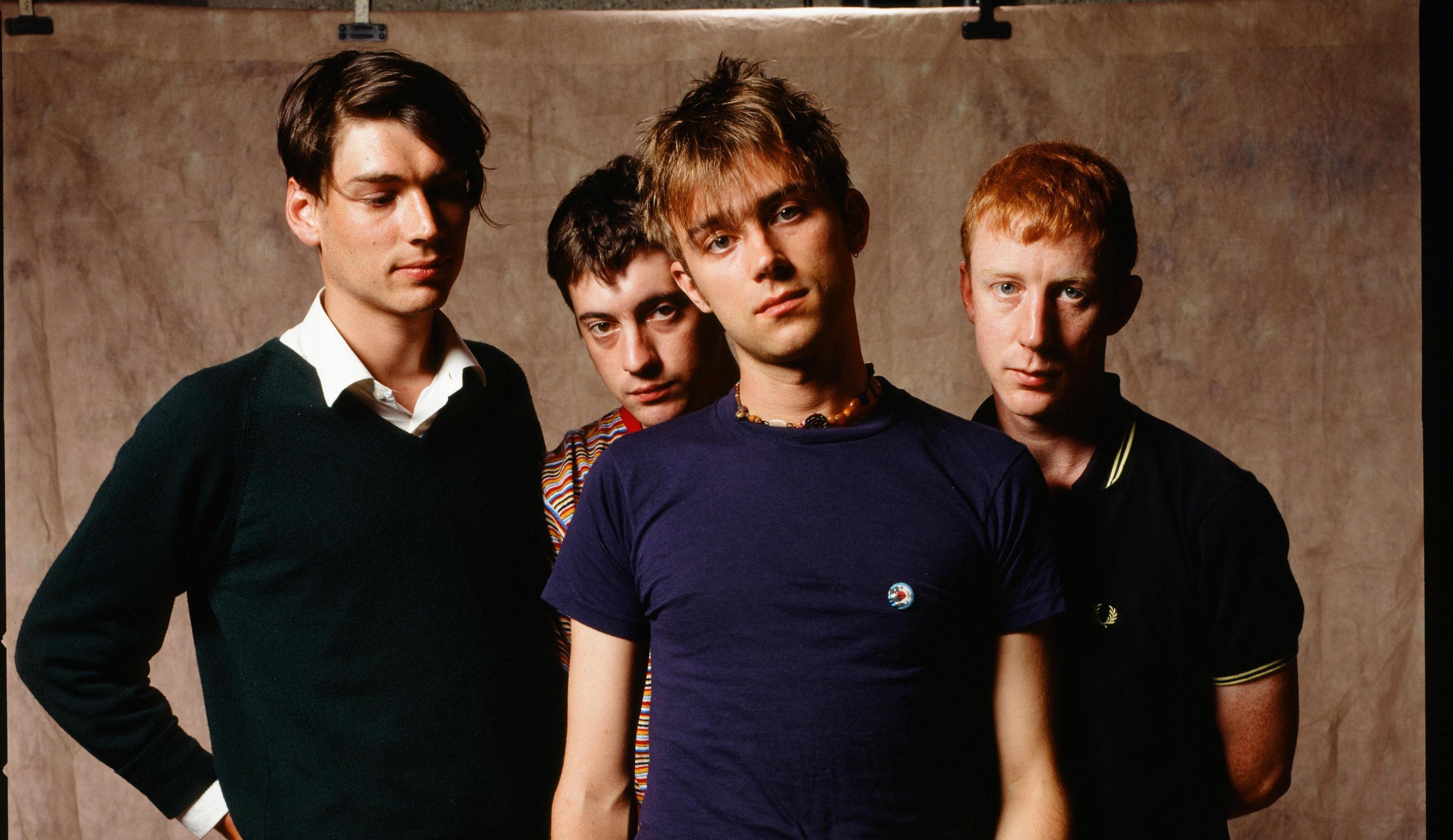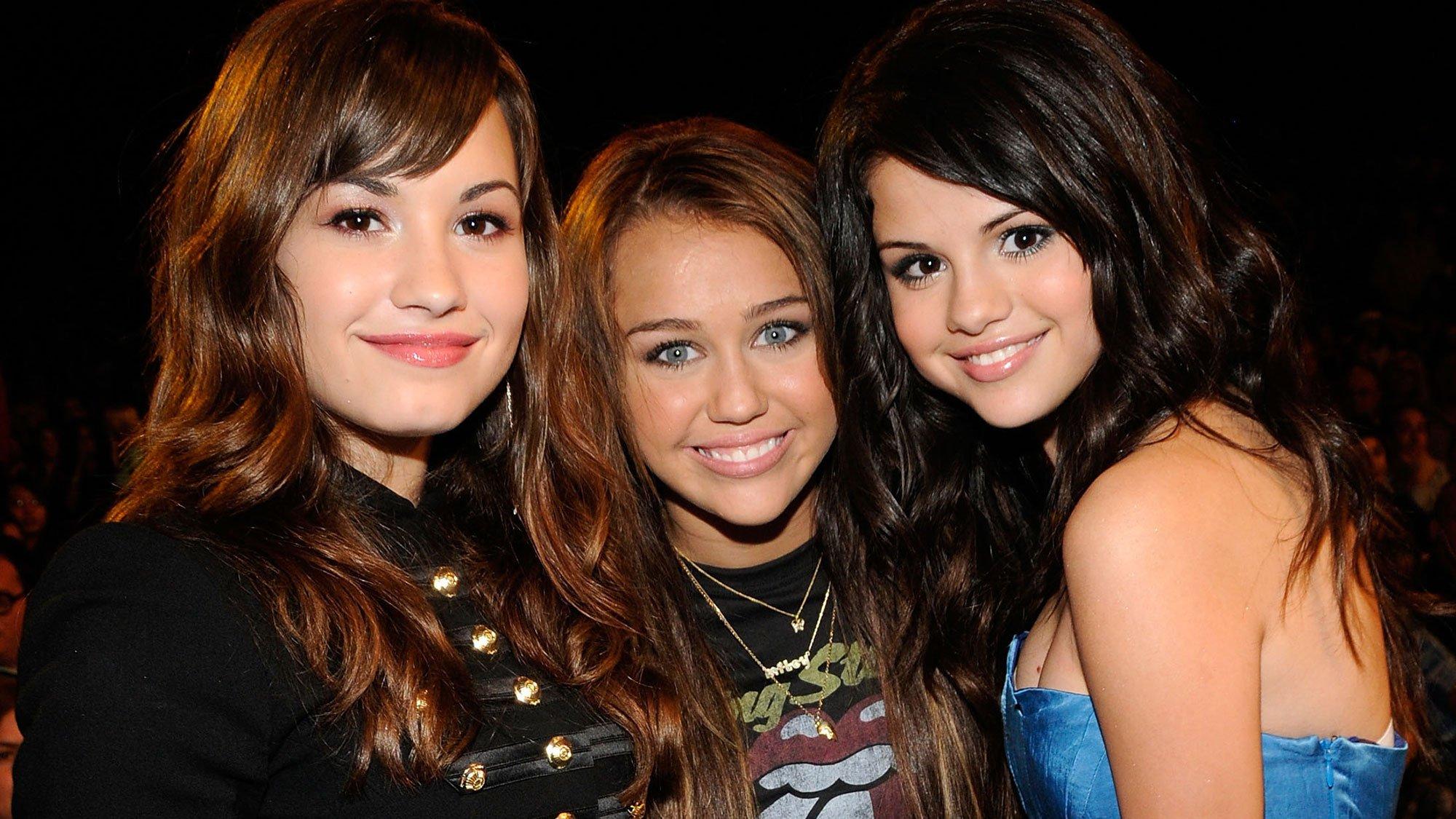As the COVID-19 pandemic continues to rock the music industry, GRAMMY.com reached out to a few musicians to see how they were spending their days indoors. Today, we have a special bi-costal edition, with Brooklyn-based Rosehardt and Los Angeles-based Lauren Ruth Ward, two artists featured in Dr. Martens Presents: Music & Film Series, sharing their Quarantine Diaries.
Rosehardt, Brooklyn
[8:45 a.m.] On occasion, I'll wake up and my hair will be shampoo commercial voluminous. I don't try and explain it, I just show gratitude by continuing to care for it like my mama taught me.
[9:30 a.m.] We made cold-seared salmon last night. Hella tasty. I put the leftovers into an omelet. Also hella tasty. Additionally, if one can have toast with jam with breakfast, and one can also have toast with peanut butter with breakfast, then logically one can have a PB&J with breakfast. Don't @ me.
[12 p.m.] Today was a very special day.
[12:05 p.m.] A very, very special day.
[12:45 p.m.] Not only did the American people make the right choice at the voting booths, but I became the proud owner of this gorgeous piano. It was given to me by the sweetest woman from Craigslist (!!!).
[1 p.m.] Seriously, if you want a piano and have room, peruse the free section on CL, you'd be surprised. I was so tremendously fortunate to not only find this piano in amazing shape, but I couldn't have asked for a better CL experience. Her only stipulation was that it went to someone who would put it to use and das me. Thank you, Julia from Craigslist.
[1:30 p.m.] This is my cat Ishmael. I don't usually let him in the studio but I was feeling gracious and he was meowing incessantly.
[4:45 p.m.] This is Alex, the mysterious piano tuner my roommate recommended who not only does a great job tuning, but always obliges when asked to play a little when he's finished. I really wish you could hear this photo.
[5 p.m.] I plunked around on the beauty for a minute and now it's loaf time. Ish loves loaf time. We all love loaf time.
Lauren Ruth Ward, Los Angeles
[8 a.m.] Wake up and caffeinate. We have an espresso machine with a milk steamer, the whole shebang.
[8:15 a.m.] Check in. Look at my calendar and make sure my schedule is realistic. My friend Emma and I call ourselves The Over-Committers Committee (lol). I drink my coffee on my porch, sometimes journal and send out confirmation texts to hair clients and anyone I have plans with.
[8:30 a.m.] I pull myself away from my phone—I have a timer on my social apps to keep me from mindlessly scrolling! Depending on the day, I will do Patreon duties, Pullstring Vintage work or merch fulfillment. All of these are truly exciting and inspiring.
On Patreon, I post behind-the-scenes videos, and photos on my private Instagram. I also chat with fans about their week and if they relate to what I've shared. This kind of connection with them has kept me sane. I also get to "see" two of my Patron tiers monthly on a Zoom hang. I also spend this time prepping monthly mail-out incentives.
Pullstring Vintage is my new baby! After a buying trip, I wash all the items. Some need extra love—bleaching, tie-dying, studding or button, hem or zipper repair. Then, I take photos of all garments with my friend Zoë. Prior to posting, I take measurement photos and create descriptions for each garment. I then post and repost and chat with my sweet vintage-loving supporters. On drop days, I stay tethered to my assistant, Ivy, who takes care of sales via DM. Mondays and Fridays are post office days. I put thank you letters and pressed flowers go into every package (I love this part). We then DM everyone their tracking number along with another thank you.
Merch fulfillment! I sell 14 different items on Bandcamp. They have slightly different packaging processes but everything gets autographed, thank you carded and, you guessed it, pressed flowers from my garden.
[12 p.m.] After tapping in and out of the above worlds, it's usually lunchtime. I'll have a little something and then exercise! I love walking a couple miles while listening to podcasts (Brené Brown) or audiobooks (currently spinning the autobiography of Malcolm X). Or, if I have less time, I'll turn the heat up in my living room and freestyle yoga with dance and ab work integrated. I always do this to screamo/pop rock bands' albums, something I listened to in high school. Yesterday was Decadence by Head Automatica—totally holds up. If I have even less time, I'll freestyle dance in my front yard for three to four songs—quick and life-changing.
On other days, this is prime haircut time. I prefer to cut in the hours of 11 a.m. to 5 p.m.
[3:30 p.m.] As I mentioned, on Mondays and Fridays I go to the post office (where I am helped by either Ernie, Adora or Stanley). Other days I'll have a golden light, front yard hang with a friend.
[5 p.m.] I kiss my dog for the seventieth time today.
[6 p.m.] Pandemic life: make dinner, sometimes simple, sometimes elaborate. I prep snacks and juice my Imperfect Foods produce for the week. Then I hang/watch TV/read/after-dinner walk with my partner. Sometimes we'll have a guest or two over for a drink and a porch hang. Living the dream!
Days where I have no clients and no pending orders, I either aimlessly craft or I write. Song messages come to me unplanned—this is my way of planning those unplanned creative spurts. I work on songs alone and sometimes with bandmates. The day will go as follows: coffee, podcast while I walk, then get together with either Eduardo for LRW band, Chris for Aging Actress or Andrew for Heaven Electric.
These days are few and usually clumped together. Because I released an album in March and because the music industry has slowed down immensely, I've been treating writing less militantly and been allowing myself to explore other passions.
De'Wayne Talks "Top Gun," Jimi Hendrix & Radiohead, Finding Himself In L.A.





